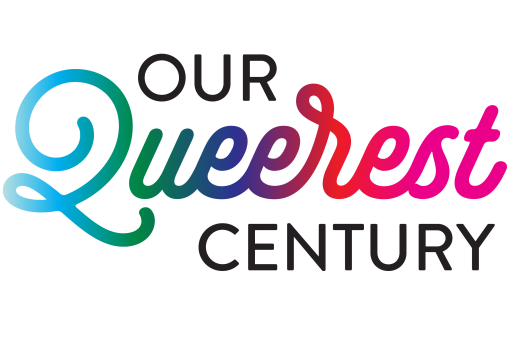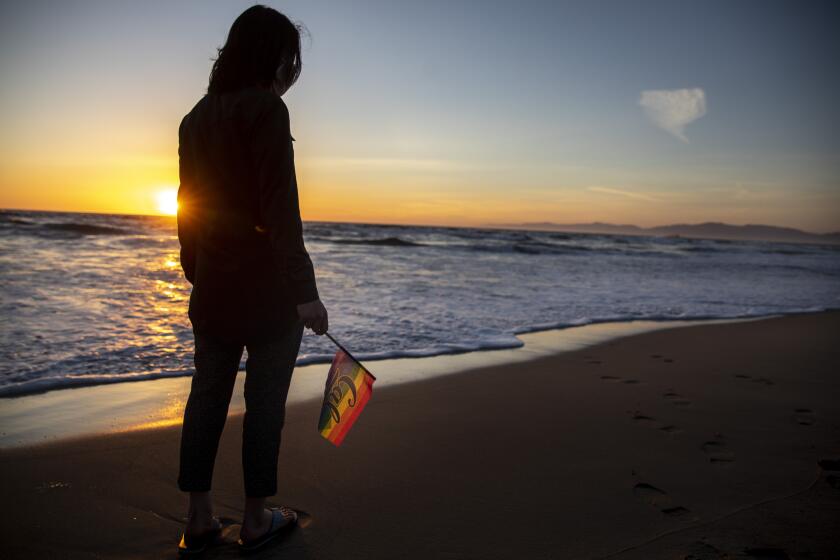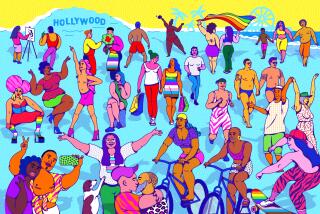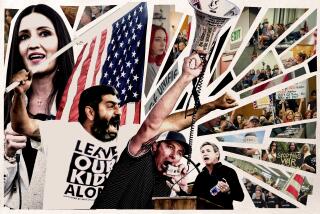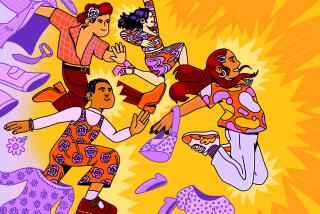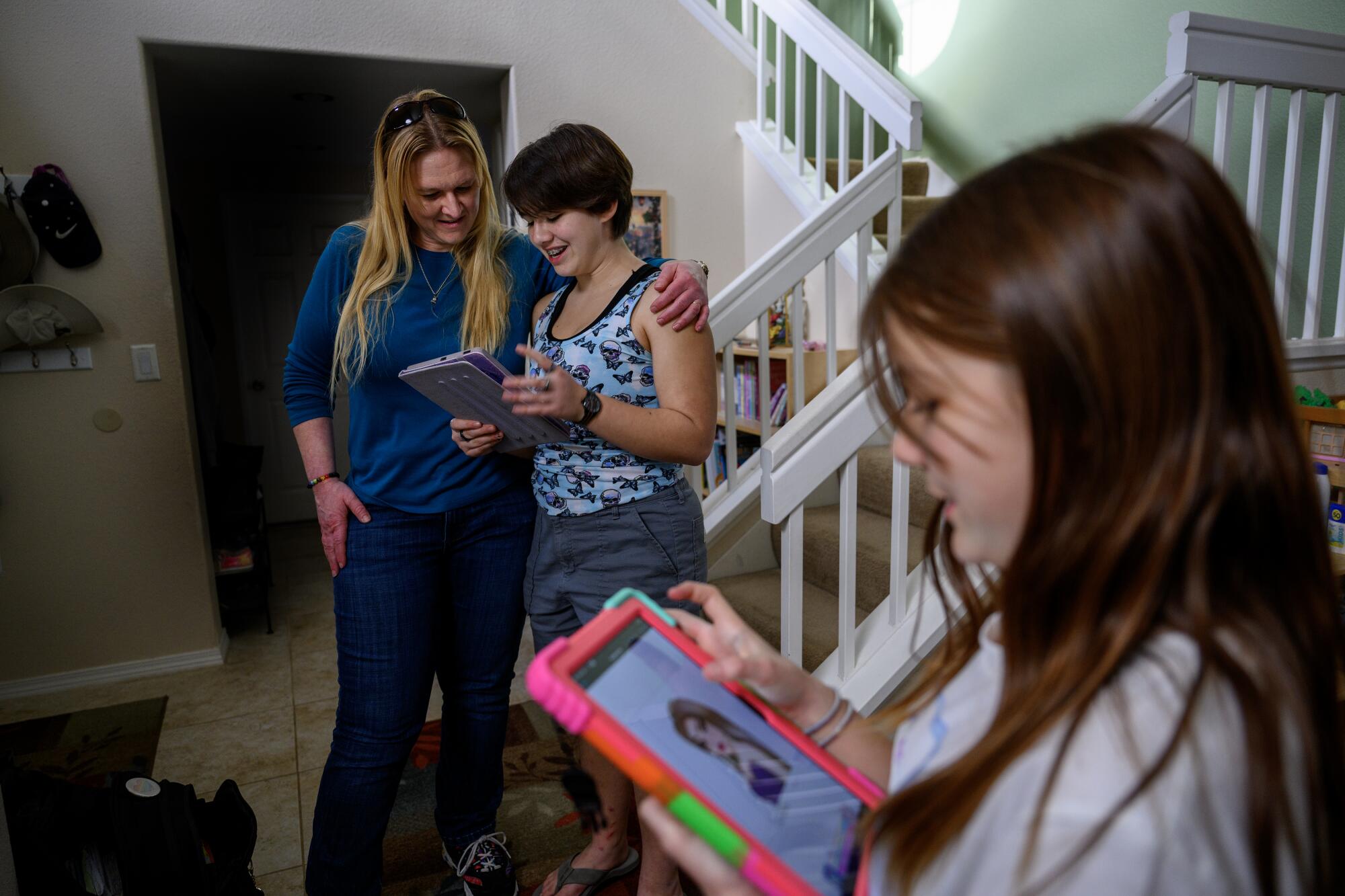
- Share via
Americans broadly support LGBTQ+ people living as they wish, with large majorities backing same-sex marriage, same-sex couples raising children and laws to protect queer people from job discrimination, according to a new nationwide poll for the Los Angeles Times.
The public offers less support for transgender and nonbinary people. And support for all LGBTQ+ groups drops among Republicans, people who identify as Protestant and those who don’t personally know anyone queer, the poll found.
With queer lives and culture under threat, Our Queerest Century highlights the contributions of LGBTQ+ people since the 1924 founding of the nation’s first gay rights organization.
Pre-order a copy of the series in print.
The survey also found deep divisions on questions related to queer youth, such as whether children should have access to gender-affirming medical care.
The poll, done for The Times by NORC at the University of Chicago and paid for by the California Endowment, was designed in part to re-ask questions from a groundbreaking survey on American perceptions of gay and lesbian people that The Times conducted in 1985.
The results document a huge shift in American opinion over a nearly 40-year period.
- In 1985, 72% of American adults said sexual relations between adults of the same sex were always or almost always wrong. Today, that has dropped to 28%.
- In 1985, 64% said they would be very upset if their child was gay or lesbian. Now, 14% said that.
- In 1985, 51% said they favored laws protecting gay and lesbian people from job discrimination. In the latest poll, 77% do.
The new L.A. Times/NORC survey also included questions about transgender and nonbinary people, as well as questions around current hot-button topics such as queer youth, education and medical care.
Those questions showed that “some of the levels of acceptance just aren’t as high for trans and nonbinary people” as they are for gay men and lesbians, said Dan Malato, NORC’s senior research director.
About 1 in 4 Americans said, for example, that they would be very upset if their child was transgender or nonbinary — nearly twice as many who said they would feel that way about a gay child.
And while 80% say they either somewhat or strongly approve of gay and lesbian people living as they wish, that drops to 67% when asked about transgender and nonbinary people.
After decades of progress by LGBTQ+ advocates, more Americans than ever identify as LGBTQ+. The LATimes/NORC poll finds 7% of adults do so, a number that is consistent with other recent surveys. That share is higher among young adults. In Gen Z, according to the latest surveys by Gallup, which has tracked LGBTQ+ identification for two decades, 1 in 5 adults identify as LGBTQ+, including 15% who identify as bisexual, 3% as lesbian, 2.6% as gay and 2.8% as transgender.
Far more kids today feel comfortable coming out as queer, prompting regular dialogue about LGBTQ+ issues in schools and households nationwide.
Religious and political conservatives have ramped up efforts to push back. Conservative state legislators have introduced hundreds of measures aimed at reining in the rights of LGBTQ+ people, and activists have begun protesting LGBTQ+-inclusive policies at local school boards and other government meetings.
The effort has been so concerted, widespread and successful that prominent LGBTQ+ rights organizations have sounded alarms, with the Human Rights Campaign last year declaring a “state of emergency” for LGBTQ+ Americans.
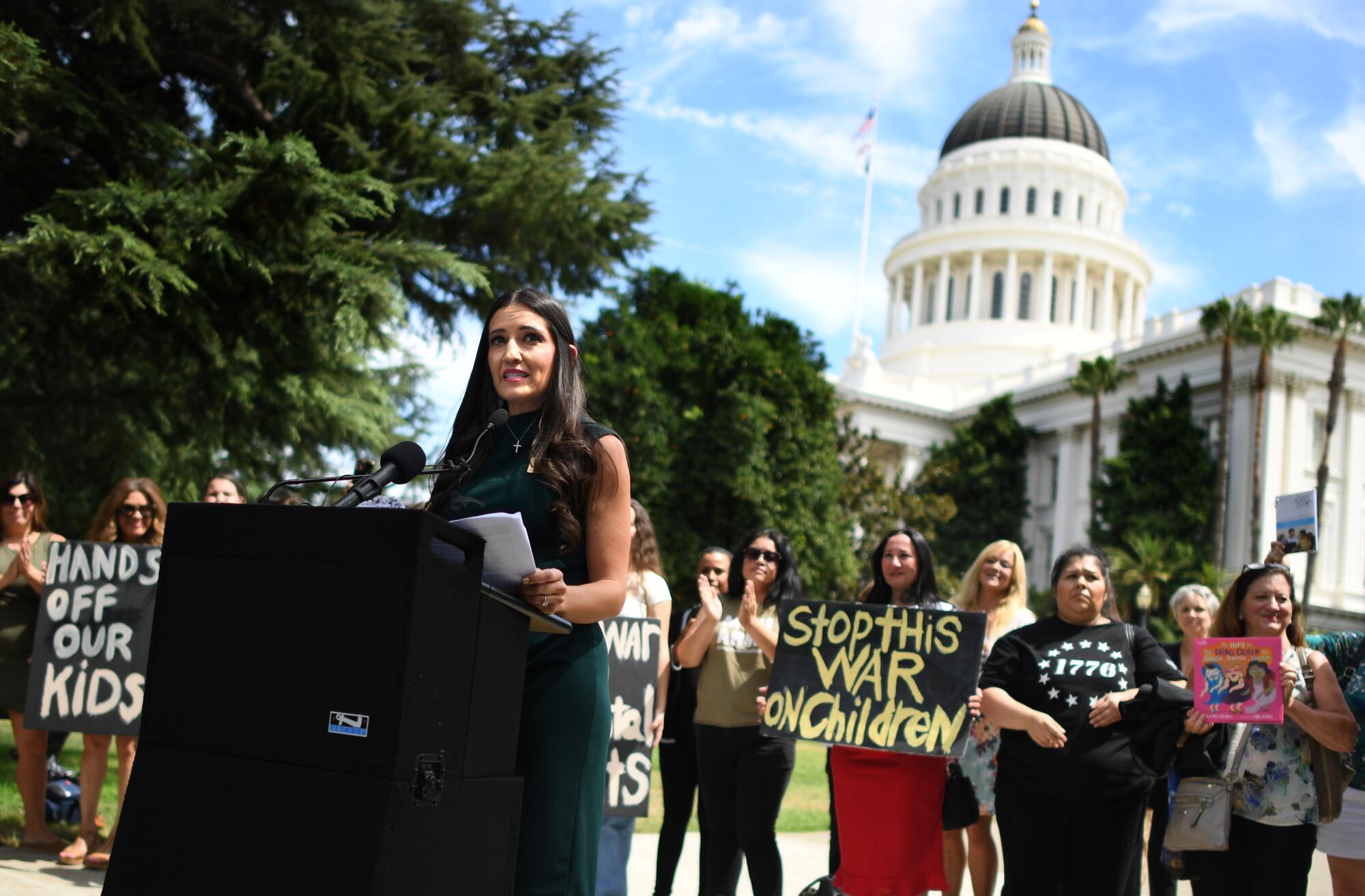
Politics pervasively influenced people’s feelings, the L.A. Times/NORC poll found. A large gap between Democrats and Republicans shows up throughout the survey.
Among the large majority of Americans who say that LGBTQ+ people have influenced society, for example, 76% of Democrats said the influence was somewhat or very positive, while nearly the same percentage of Republicans — 77% — said the influence was somewhat or very negative.
Republicans were also less likely to support transgender and nonbinary people living as they wish or receiving job protections, the poll found.
But the poll also found many Americans are weary of LGBTQ+ issues in politics.
Asked whether issues related to transgender and nonbinary people were an important priority for elected officials or were being used to distract attention from more pressing matters, 77% said they were a distraction.
Among those most exhausted are families with queer kids.
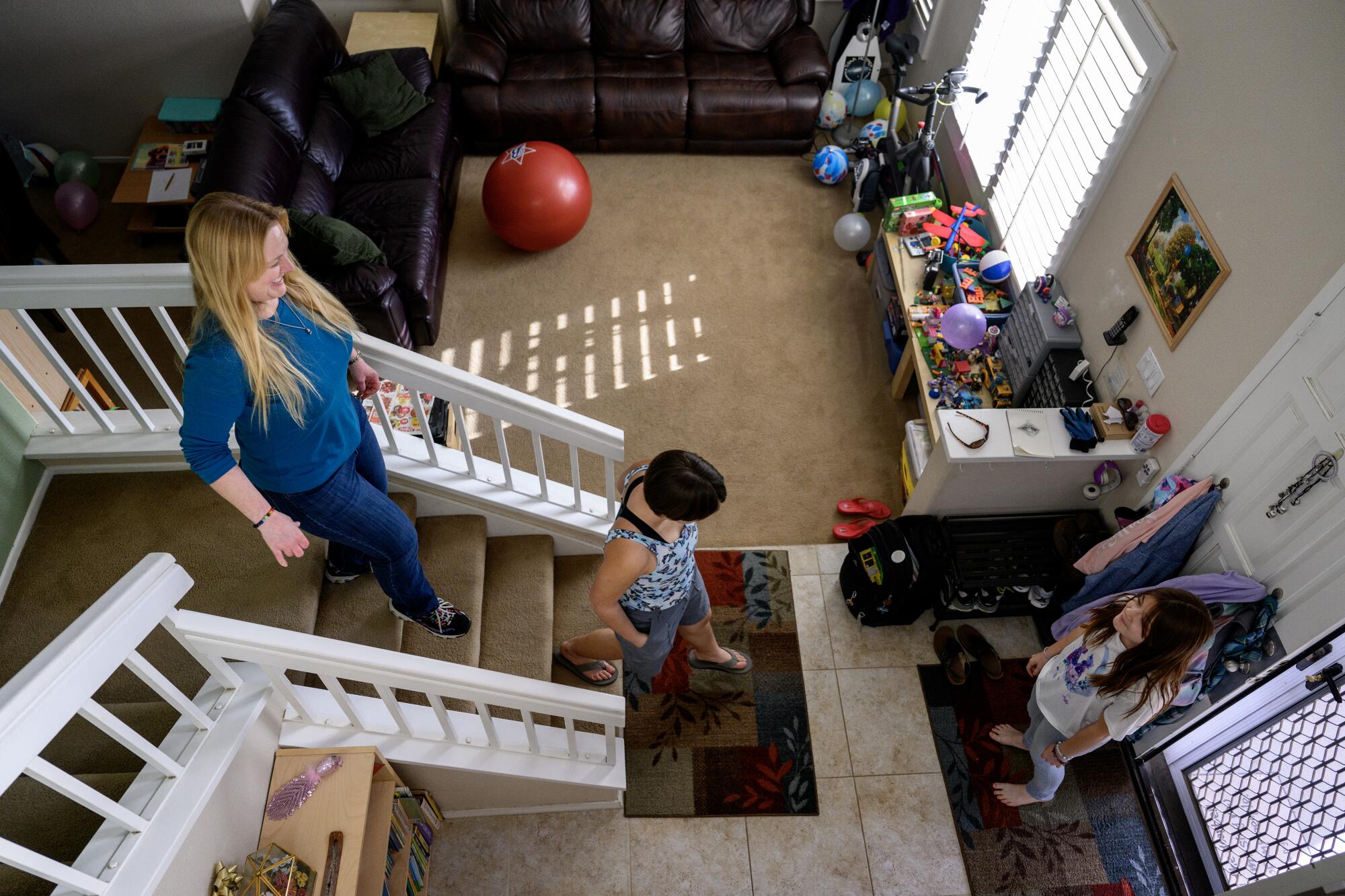
“It’s a bit depressing, frankly,” said Rachel Wineman, a liberal 41-year-old poll respondent from the conservative Southern California town of Murrieta, who has a 13-year-old nonbinary child.
“I can only hope that it will get better as more people discuss it,” she said. “At least it’s getting out there.”
Awareness and acceptance
Americans are more likely to support LGBTQ+ people if they know an LGBTQ+ person, the poll found, echoing decades of research. The link between knowing queer people and supporting them has inspired generations of LGBTQ+ activists to call on queer Americans to come out.
A far greater percentage than in 1985 said they did know someone queer.
In 1985, 24% of Americans said they’d had a relative, friend or co-worker personally come out to them as gay or lesbian. Today, 72% say so.
By contrast, 27% of Americans said they’d had a transgender or nonbinary relative, friend or co-worker come out to them. That share dropped to 18% among Republicans.
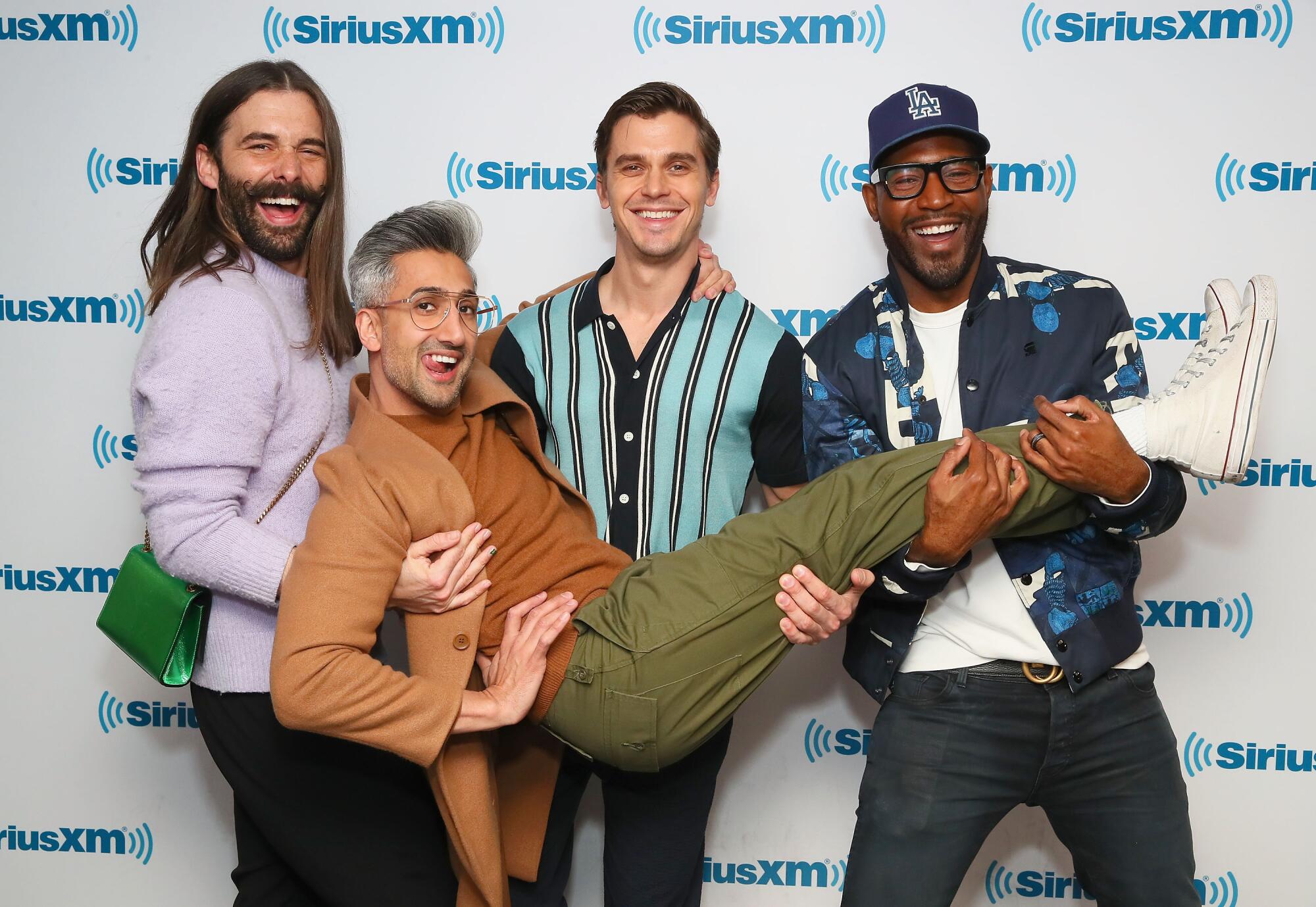
More than 8 in 10 Americans agreed that LGBTQ+ people have had an influence on American arts and entertainment. Nearly 7 in 10 Americans said LGBTQ+ people have had an influence on civil rights and the law. More than half — 56% — said queer people have influenced government.
Respondents who knew someone queer were more likely to say such influence was positive.
Queer poll respondents said the findings matched their own experiences across America, where local familiarity with queer people can determine whether they feel welcome or threatened.
Steph Brontman, 37, of Bellingham, Wash., identifies as transgender, nonbinary and agender — which is having no gender — and uses they/them pronouns.
Brontman said Bellingham is full of queer people, and they feel comfortable being themselves there. They feel similarly in populated areas up and down the West Coast, Brontman said.
But that changes when they travel into more conservative and rural areas where residents may be less familiar with queer people, Brontman said. On a recent cross-country road trip, for example, Brontman said they found themselves mentally preparing for a confrontation every time they stopped to use a bathroom.
“I literally was preparing stories in my mind for if someone questioned me, like, ‘Are you one of those trans people?’ ” Brontman said. “I would have said ‘no’ for my own safety.”
Brontman said conservative thought leaders in the country have intentionally made transgender and nonbinary people out to be a threat by exploiting people’s unfamiliarity with them. More people would see how wrong that is if they knew queer people personally, Brontman said.
“I’m the quietest, kindest person you could meet. I want to help other people. I just want to be left alone,” they said. “We’re not scary. We’re not anything. We’re just like you. We’re all different.”
Kids and school
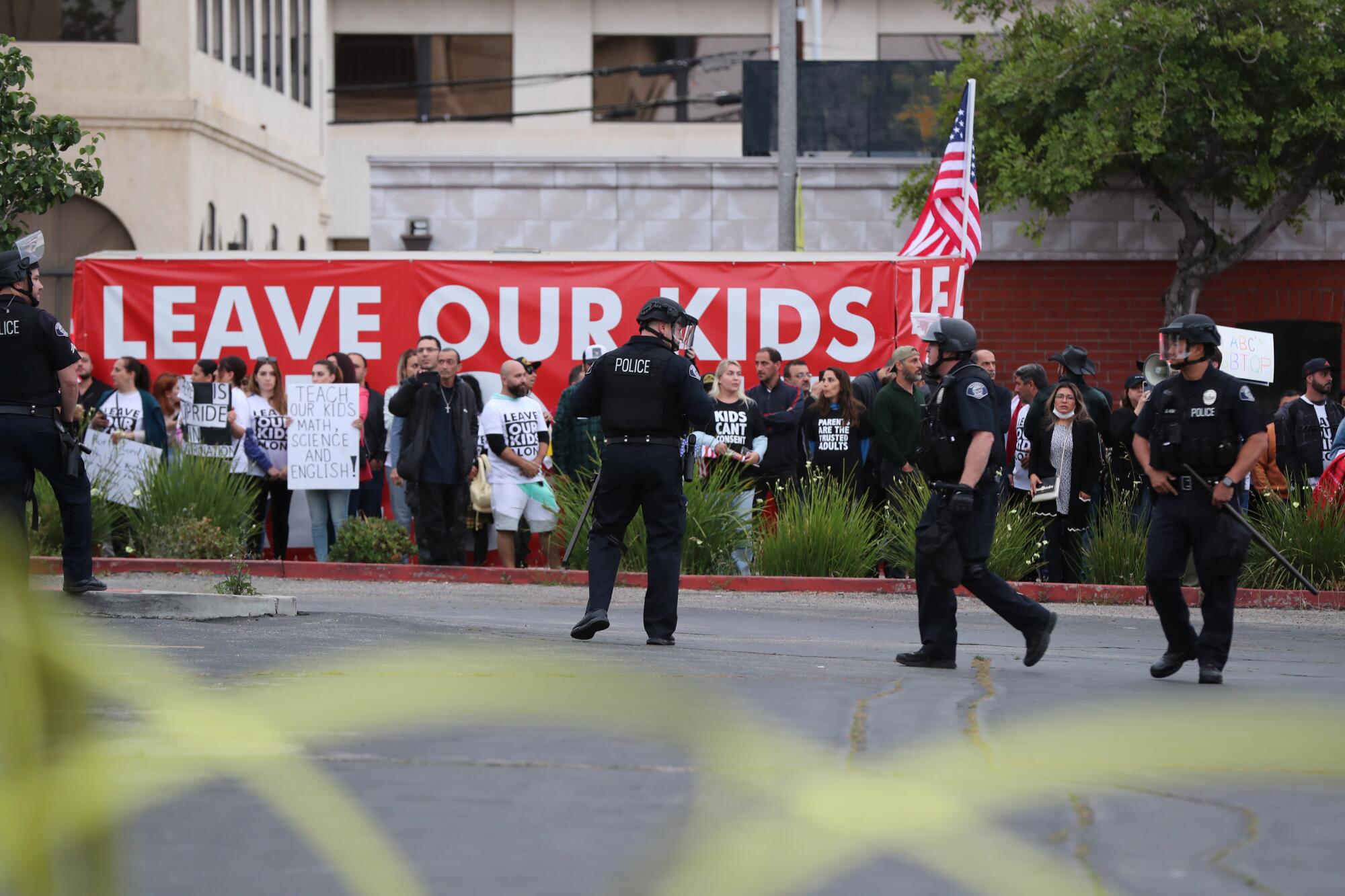
Americans are closely divided on issues related to queer kids.
Asked about adults, two-thirds of Americans favored laws to protect the ability of transgender or nonbinary people to receive gender-affirming care, the poll found. That number fell to 50% when the poll asked about such care for transgender or nonbinary children.
Many of those surveyed — 42% — said it is mostly or always “just a phase” when young children identify as transgender or nonbinary. An additional 38% said it is sometimes a young child’s true identity and sometimes just a phase. About 19% said it was mostly or always their true identity.
The numbers were reversed for adults, with more than half of respondents — 52% — saying that it is mostly or always an adult’s true identity when they identify as transgender or nonbinary, and 19% saying it is mostly or always just a phase.
There’s less division on whether to teach kids about the history and contributions of LGBTQ+ people: 60% said kids should be taught such material in school, even though most said they had not been taught such material themselves.
LGBTQ+ people have helped define America. Our contributions to the nation’s cultural identity are indelible. We cannot be erased.
Eighteen percent said such education should begin in elementary school, 20% said middle school and 22% said high school. Another 10% said college, while 28% said it shouldn’t be offered.
Some poll respondents said kids are where they draw the line on supporting queer rights.
Jackie Cromwell, a 49-year-old poll respondent from Monroe, Mich., said he is “pretty much a Republican” but occasionally votes for Democrats, and is a “follower of Christ” but no one church.
The part-time truck driver, part-time accountant and part-time YouTube video creator said he thinks same-sex relationships are “wrong and disgusting” but that what LGBTQ+ adults do in private is none of his business.
It becomes his business, he said, “when they start to influence that stuff on kids.”
“The thing I don’t like about gays,” he said, “is they’re going around teaching this stuff in schools.”
Americans want kids to learn LGBTQ+ history. But they are split on how they would feel if their own child were transgender, a new poll for the Times finds.
Barbara Hurley, 32, of Tucson, Ariz., offered a more nuanced view. A mother and a political independent who works as a substance abuse counselor for teens and young adults, Hurley said she has a transgender family member and believes everyone should be accepted for who they are.
At the same time, Hurley said she worries that “a lot” of kids today who aren’t actually transgender are being influenced into thinking they are.
“So many people are influencing these younger people to be some way,” she said.
She is fine with kids exploring gender using their clothing and appearance but doesn’t believe children should have access to puberty blockers or hormones, she said.
“They don’t know what kind of effect it’s going to have on their life,” she said. “It should wait until their brains are a little more developed and they’re a little bit older.”
Real life issues
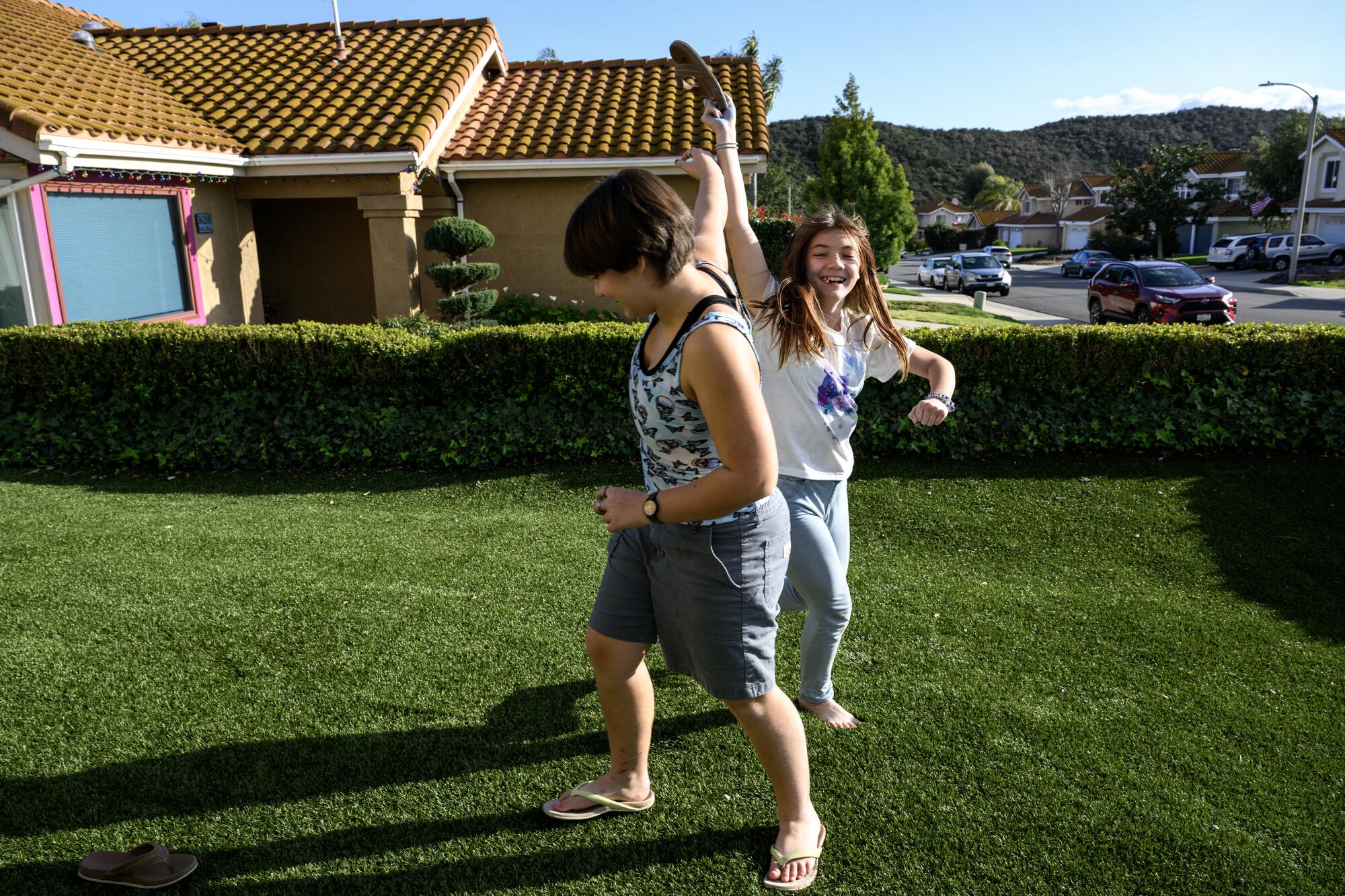
Queer families are navigating such issues on a daily basis.
In Murrieta, Wineman said her child Kestrel, 13, had always “blurred lines” when it came to gender, but started asking more serious questions about it in the fall, when in eighth grade.
Kestrel said they had grown increasingly uncomfortable as their body changed with puberty, “experiencing a bit of gender dysphoria” whenever they looked in the mirror. So one day, they broached the topic of buying a chest binder. Such clothing compresses chest tissue enough to make one’s breasts less apparent.
Wineman agreed to buy a binder, and it “really helped,” Kestrel said. So did getting a shorter haircut, they said. Immediately they felt more like their gender-neutral self.
Kestrel has since told a couple of friends, and a few have started using their preferred pronouns. But lots of kids still don’t know about their identity, they said, and it hasn’t been easy.
“I’ve had some people just randomly coming up to me and asking whether I’m a boy or a girl,” Kestrel said. “Sometimes I just give them some answer, like ‘neither’ or ‘both,’ or sometimes they just end up looking at me funny and just walking away.”
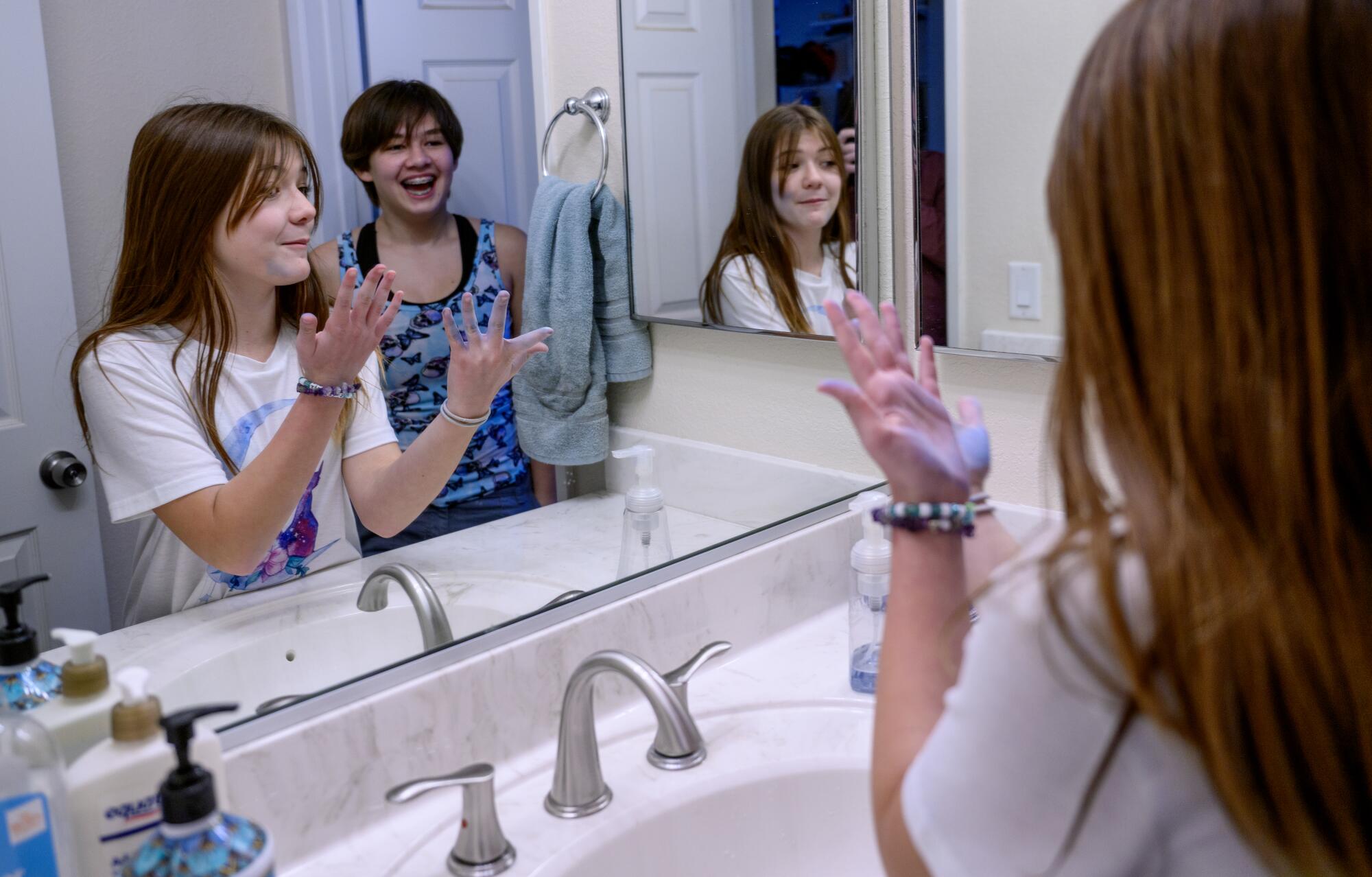
One recent day, a kid ran past Kestrel — who is white and Asian — and screamed that they were “an F-ing transgender N-word,” Kestrel said. “I kind of just brushed it off.”
Harder, they said, was a conversation with a friend from a conservative family, who told them being nonbinary was wrong. “It was just kind of sad,” Kestrel said.
“We live in this little sort of Republican, conservative, religious enclave, which makes it a little bit more difficult,” said Wineman, a stay-at-home mom who also does some substitute teaching and recruitment work. “I’m pretty proud of them for just standing up for themselves, but it can get exhausting.”
Wineman said she resents that “politicians keep harping on these things to scare people” into holding anti-LGBTQ+ positions.
Kestrel, a writer and artist who loves to create fantasy worlds full of gender-nonconforming characters, said they wish people in the real world would stop arguing over such identities — because they aren’t up for debate.
“It is not at all a choice,” Kestrel said. “It is 100% you.”
NORC conducted this poll in January using its AmeriSpeak panel, a probability-based panel designed to reflect U.S. households overall. The poll surveyed 1,624 adults — including 775 Californians and 313 LGBTQ+ people — and was weighted to match benchmarks for age, gender, census division, race and ethnicity, and education. It had an estimated margin of error of 3.8 percentage points for the full sample.
More to Read
Sign up for Essential California
The most important California stories and recommendations in your inbox every morning.
You may occasionally receive promotional content from the Los Angeles Times.

